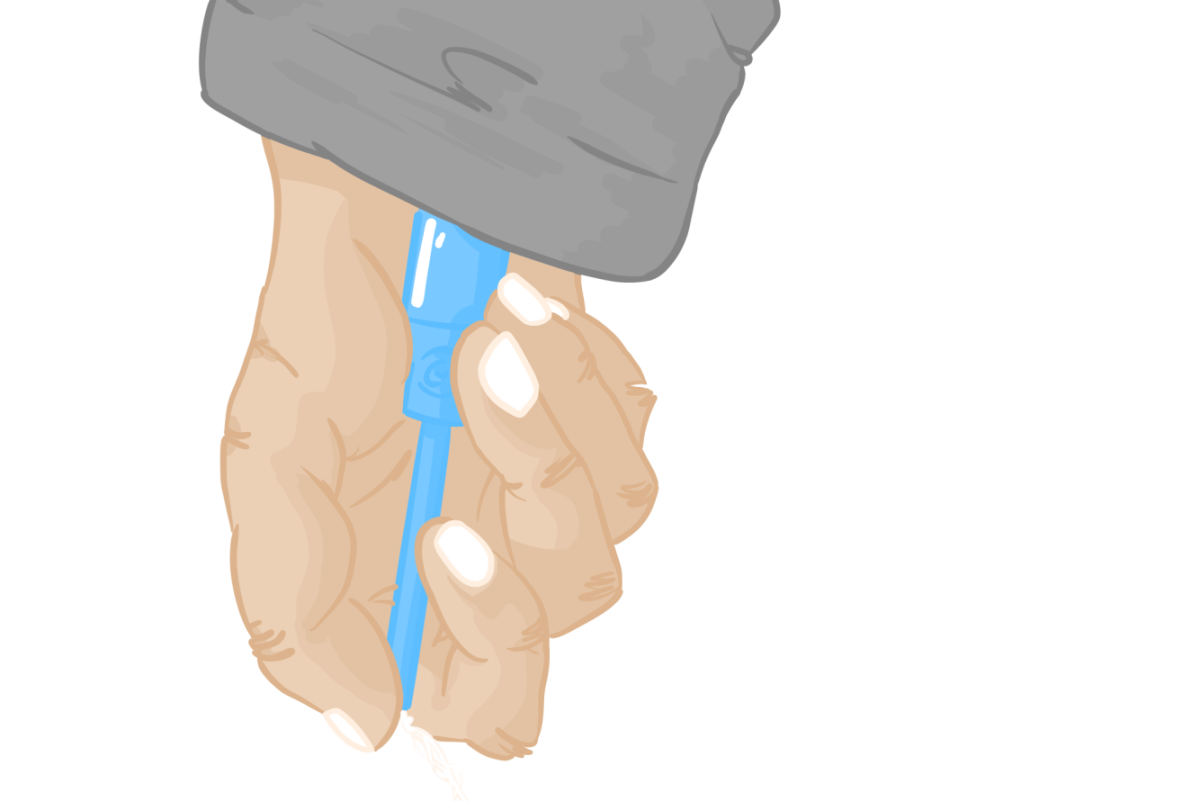The Issue: Health Care
Health Care has always been an important and touchy issue among American citizens as well as the presidential candidates. During his presidency, Barack Obama instituted a universal health care program called The Patient Protection and Affordable Care Act. The program raises taxes and requires all Americans to own health insurance and bans insurance companies from denying coverage for those with pre-existing conditions. Obama will continue this program, while Mitt Romney will leave universal health care decisions to the states in order to lower taxes and reduce big government.
Claire Salzman: I support President Obama’s universal health care plan because I think it is a civil right that all Americans are entitled to. In the end, it will end up saving the taxpayers money because people won’t be going to emergency rooms if they don’t have insurance and end up charging the taxpayers for that. It’s giving everyone an equal fighting chance against disease, whether or not they have pre-existing conditions, and also saving us money in the long run.
Maggie Teson: Nobody wants to see people suffering from illness. Nobody wants to see poor people suffering from disease. My biggest issue with President Obama’s health care plan is the fact he believes it’s okay for the government to come into individual lives and tell people what to buy. It’s different from taxes because taxes are something that you actually use and that you actually benefit from. Like a road tax: I use a roads; however I shouldn’t have to pay for someone else’s health care if I won’t ever benefit. The government doesn’t have the right to come into my life and tell me what I should pay for.
Anna Brodersen: I think that it’s your right and you have the individual right to say no to paying for things you’re not going to use. You have the right to use your money on what you’re actually going to need, and if you think about it, when is the last time a big government takeover has ever been more efficient? In this instance, it’s essentially taking away the rights of people.
Kyle Rieger: I hardly think this can be considered a government takeover. And you can look at other nations that have done similar things. For example, Germany has a similar health care system and they are fairly successful with it. Now, I think that there is some validity to your argument, but there’s also part of the good civilian deal that comes with it. You’re not certainly going to use it, but it would be more effective for us not to look at America as a bunch of individuals, but more as a group of people that can help each other.
Ian Madden: Going off of what Kyle said, I completely agree. I think that we should think of America more as a community of people instead of trying to focus more on ourselves as individuals and our own cost. We should think about how paying for health insurance might benefit other people who really, really need the health insurance and can’t get it on their own.
Anna Brodersen: Everyone’s taxpaying is going to this health care and we’re slashing money from Medicare, which is essentially what Kyle and Claire and Ian are talking about helping out the people who don’t have health care. The money from Medicare is helping those people who can’t necessarily afford or have real health care, and so slashing the money on that and putting it toward a universal health care plan is not the most efficient way to do things.
The Issue: Taxes
George Bush enacted the Trickle-Down policy during his presidency. The Trickle-Down policy cuts taxes for the wealthy with the theoretical assumption that they will spend any money saved to stimulate the economy. Romney will renew Bush’s Trickle-Down policy before it expires during the next presidential term. Romney will lower corporate income taxes, hoping that with additional money, these companies will keep and hire more employees, lowering America’s unemployment rate. Obama will let Bush’s Trickle-Down policy expire and raise taxes on those with an income over $200,000 per year back to the amount they were before the policy was enacted. He also intends to cut taxes for anyone with an income under $200,000 per year.
Kyle Rieger: It’s my belief that the Trickle-Down does not work. I feel like there should not be a flat tax. If you make a larger income, it’s your duty as a citizen to contribute more to the society you’re in. Obviously, you play a bigger role in American society; therefore, you should give more back.
Claire Salzman: I agree with Kyle and disagree with the Trickle-Down Policy. I think it’s only fair that the more you make, the more you give back because by the logic that everybody has to pay a flat tax, everyone starts out on the same level and all people are created equal when they are born, but I don’t think that’s true. In theory, Trickle-Down could work, but in practice, we live in a country that has a lot of economic inequality, and people don’t start out as multi-millionaires. So, because of that, I don’t think it’s fair to assume that people who make less work less or don’t work as hard. Basically, the people who make more money should have to give back more than the people who make very little.
Anna Brodersen: My thought is that capitalism is the engine for this free society. When small businesses are trying to innovate and grow, it makes that business unstable. Obviously, if you’re making less money, it in no way means you’re working less. I just believe if you worked for this money, you earned it. That’s your money, and as a citizen, these are your rights. You have these free rights and because you make all this money, you shouldn’t have to give it away to people who didn’t make as much. I’m not trying to say that poor people shouldn’t benefit from this; I’m just saying it’s not fair if you make more money and you have to give it away because you potentially worked harder.
Ian Madden: What I think is interesting is that the Trickle-Down policy has been in effect for several years, and since it has been in effect, our economy hasn’t been great. It was an attempt to fix the economy that clearly didn’t work. Letting the policy expire and raising the wealthy’s taxes back to where they were under Clinton seems completely fair. The policy worked under Reagan: it did stimulate the economy, but it’s not being done in the same way that Reagan did the policy. I think it should expire, and that we should find an alternative solution instead of continuing to allow the wealthy to be given a break on taxes.
Maggie Teson: Taxes are an interesting issue for me. I don’t think just because you’re wealthy you should have to pay more, because in a sense, if someone in the middle class is paying a certain amount and someone in the upper class is too, it kind of evens out. If the middle class pays a certain amount and then the upper class pays a certain amount, it has to be proportional. Wealthier people shouldn’t be paying a lot more than the middle class.
The Issue: Immigration
Romney will loosen immigration restrictions for skilled workers, tighten the border between Mexico and the United States and deport as many illegal immigrants as possible. Obama will also secure America’s borders, but loosen deportation laws by focusing deportation efforts on those who endanger society, de-emphasizing low-priority cases like senior citizens, students and veterans and attempting to pass legislation that keeps the spouses and children of legal citizens in the country while they begin the legal immigration process.
Claire Salzman: Immigration is an issue that I am torn on. On one hand, I don’t want American citizens to lose jobs. But on the other hand, the jobs that they’re “losing” are jobs that they’re not even taking in the first place. There are hard labor jobs that Americans don’t really want and are not using, and as long as the Statue of Liberty says on its base that it’s accepting all immigrants, that we are a country made of immigrants, I don’t think that we can start shipping away citizens, whether or not they’re legal. I’m more on base with the president on this one, but I’m still a little torn.
Maggie Teson: I also agree that immigration is a difficult issue just because I have a lot of different views. My biggest problem with the immigration laws is I think the citizenship process is too extensive. If we simplify that process, it will reduce the amount of illegal immigrants coming into the country. I think a lot of illegal immigrants come into the country because it takes so long. It can take years to get approved for citizenship. So, I think we’d get a lot more skilled workers and intelligent immigrants if we made the policies on immigration looser.
Ian Madden: I don’t agree with Romney on this issue because he wants to tighten deportation laws. Whenever I picture deportation, I picture families being torn apart. I see people going back to awful situations when they’ve built a life for themselves here in America. To imply that people who have illegally immigrated into our country aren’t producing anything that is worthwhile or adding anything to our society is awful for me to even think about.
Anna Brodersen: I agree with Romney on this one. I do feel that we’re a country made of immigrants. However, I think that illegal immigrants coming into the country is not something that should be acceptable or tolerated. I think that by not managing the amount of illegal immigrants that come into this country, there’s potential that people come in through drug-related means or possibly as terrorists. I just feel that by securing the border, we secure the pride in our country, and secure the citizenship that you’re going to have to work for. I do believe that they mainly occupy jobs involving hard labor work so they aren’t really taking our jobs, but I do feel that they need to be paying taxes if they have a job in this country.
Kyle Rieger: I think what we need to do is not deport people who have made it over here, but really regulate the influx of immigrants for the future. I see it as unfair for someone who’s made it over here to be sent back, because they’ve constructed their own life here in America. I think that if this is a problem, and many people see it as a large issue, it should be something we stop now instead of focusing on what happened in the past. If we stop the influx today from being as massive as it has been in the past, it won’t continue to be a huge problem.
The Issue: War
Obama will gradually withdraw American troops from Afghanistan and organize a regional, diplomatic conference in order to encourage Middle Eastern nations to resolve their own disagreements. Romney will stop the nuclear program in Iran with American, potentially militant, intervention. He will place more aggressive pressure on the Syrian leader Bashar Al-Assad to keep him from persecuting pro-democracy protesters. He also intends to send troops back to Iraq because he believes America should continue helping the country establish a democratic government.
Maggie Teson: I actually agree with President Obama on this issue. I consider myself a lot more liberal on this than conservative. I do not think it’s America’s position to become the world’s diplomat. I think that America should be more neutral. We don’t have the right as a country to barge into other countries and tell them what to do. I think we should pull troops out and focus more on being a diplomatic country that strives for peace, but not through warfare or invading countries and infringing upon what they believe. Just because we think something should be done or we think something is better doesn’t mean other countries need to follow that policy.
Claire Salzman: I am on board with Maggie on this, and this is when I sound a little bit like a Ron Paul supporter. I don’t think that it’s America’s place to get involved with other nations. I think we have too many domestic issues right now and too many civil rights that are being denied to our own citizens. We can’t go into other countries and say, “You don’t have the same values as us, so we have to intervene; that’s our place.” I don’t think it’s our place. I don’t think it’s fair for us to go and tell other people how they should be living their lives, and be like “liberty bringers.” I don’t think that’s the place of America, and, on top of that, I think that a diplomatic stance would be good as moderators.
Kyle Rieger: I think we need some friends for a change. We need to actually build alliances. Now, obviously we can’t do that with these nations that we’ve started wars with; that ship has long, long, long sailed. But we need to focus less on warring and actually promote alliances with other nations, particularly in Europe and Asia. The Middle East has a lot of its own problems right now; every nation will accept that. Their difference is these other countries are not going in and dealing with them head on. They’re letting them see if they can sort themselves out, and I think we need to take the same stance.
Anna Brodersen: I don’t think there is any reason we should have any cutbacks on a military of any kind. For example, in Libya, the Air Force didn’t have ammunition when these ambassadors were getting threatened and killed, and it’s just crazy to me, seeing that we are this powerful country and that we have force and we are not able to stand up. This takes money, obviously, but when we cut back on military, then other leading forces will step in, and it’s not going to be pleasant for America because we won’t be that central force. We need to be the strong people who can defeat any enemy.
Kyle Rieger: I think it’s fine to have that force, but do we need to exercise it? That is my main problem. It’s fine if we have a gargantuan army. I’m totally down with that. It’s just the exercising of the army when we don’t need to that I don’t completely agree with.
Ian Madden: I think that it’s just awesome that Obama wants to withdraw and let the Middle East reach their own conclusion about how they wish to resolve their own conflict, and I think this promotes a lot of independence for them. In a sense, I think that’s what they need at this point. I think that for a lot of people, a lot of the conflict is caused by Americans being there in the Middle East, and I think that gradually withdrawing will help the conflicts resolve themselves.










